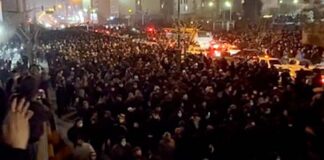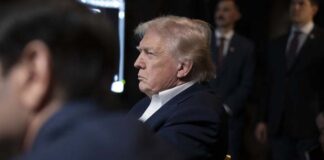Solidarity interviewed one of the key thinkers from the global justice movement, Walden Bello, of Focus on the Global South, during his visit to Sydney to talk about the decline of US power
The conflict in Georgia shows how the world has become more unstable in recent years—why do you think this is?
Clearly a central cause is the United States, and the pursuit of a such a pre-eminent position that nobody could ever challenge it, which was the aim of the Bush administration. This has in fact created the opposite effect, where US power is now at its lowest point for a quarter of a century.
If you look at Eastern Europe and Central Asia they tried to make use of the collapse of the Soviet union to extend NATO right to the doorstep of Russia. The whole crisis in Georgia is partly a result of this Western effort to encircle Russia.
What you have now is an over-extension of American power that has backfired. The disaffection with the United States extends all across the globe—even into what used to be called its backyard in Latin America, where you have a full-scale rebellion and movements that have come to power that are anti-neo-liberal and very much against the US position of influence in Latin America.
Iraq and Afghanistan have proven the same lesson as Vietnam—unless you are able to impose your occupation on the ground and to win over a population you can’t secure a country. The lesson that Bush wanted developing countries to draw from Iraq is never to defy US power. Identifying power with military superiority over anyone else was an illusion.
What other tools apart from military power has the US used to try to enforce its domination?
The US also tried to use global institutions to impose rules that would benefit US corporations—the International Monetary Fund (IMF) and the World Trade Organisation (WTO).
We in Asia are very familiar with this. Washington and the IMF wanted to promote the free flow of capital into our countries—that provoked the speculative crisis in 1997 when many of our economies collapsed.
Then the US used the IMF to try to restructure our economies so they would be receptive to the inflow of American investment and American goods.
That has backfired now—the policies were so bad in terms of their impact on the people that for instance the Thai government in 2003 paid off the IMF and said never again are we going to contract loans from this institution.
Now the IMF is in real trouble because its budget used to be funded by repayments of loans. Big borrowers are no longer borrowing so you have a funding crisis.
The same thing applies to the WTO. This was conceived by Washington as the institution that would promote free trade congenial to US corporations.
Developing countries realised that when the Uruguay round negotiations took place they had made too many concessions, so when the Doha round took place they basically said we’re not going to make any more of the concessions the US wanted. The Doha round has now collapsed three times and the WTO is in real trouble.
Again this is a case of American over-reach in using the institutions to push their interests.
The US not moving successfully in trying to snag free trade agreements is also partly because of resistance movements like that in Thailand. In January 2006 the Thai movements stormed the building in Thailand where US-Thailand free trade negotiations were taking place. Negotiations have gotten no further because of popular pressure.
This is precisely what the US elections is now about, as Bill Clinton put it in endorsing Obama—it’s about the US restoring its leadership in the world.
What do you think the US elections will mean—particularly if Obama wins the presidency?
I hope Obama wins—at the same time I know that his policies are questionable. He’s going to withdraw troops from Iraq but he’s going to raise commitments in Afghanistan. He’s very pro-Israel.
The Democrats probably would like to reassert US influence in Latin America. But do they have the capacity to implement this? We’ve got to make it very costly for the US to pursue any kind of interventionist policy. The world does not need another kind of internationalism, what the world needs is a vacation from the United States.





